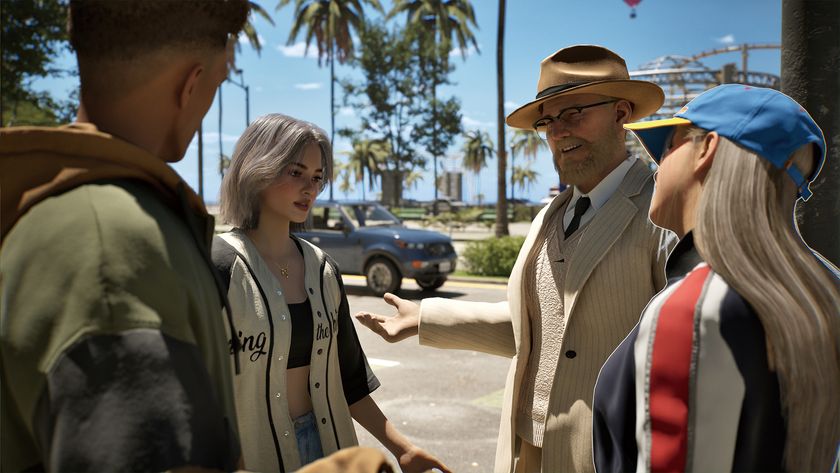Forgetting your troubles with a nice round of cards - why I love The Witcher 3's Gwent
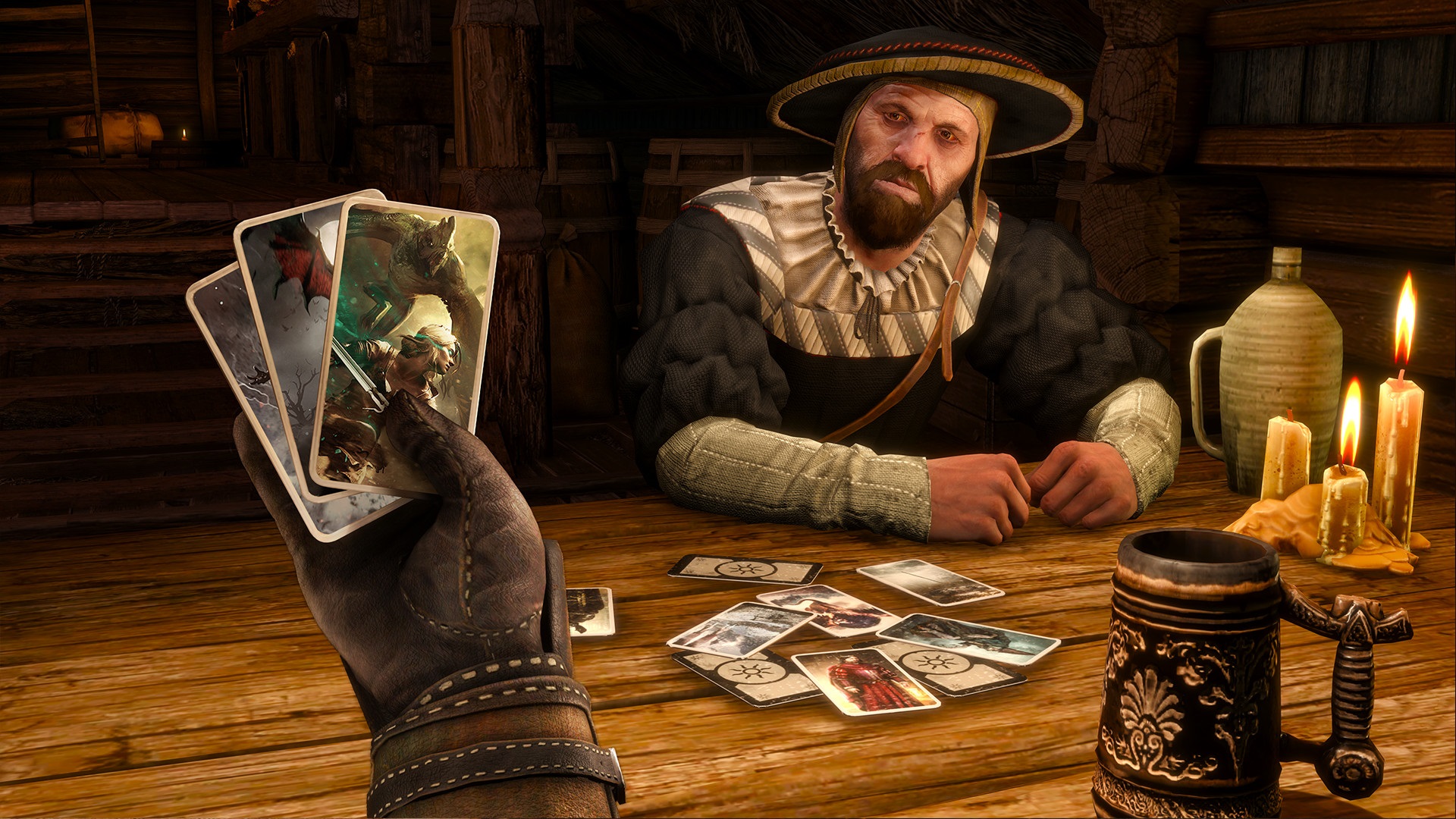
The Bloody Baron’s wife and daughter are missing. Finding them should be a simple enough job for a Witcher, but I suspect foul play. The Baron projects an air of guilt and anguish that hints at a darker past. The Witcher 3 isn’t known for its happy resolutions, and I have a feeling this will end worse than most. All things considered, then, this probably isn’t a great time to suggest a game of cards. I do it anyway.
I can’t help myself. The Witcher 3’s card game, Gwent, is an expertly crafted mini-game about skill, strategy and determination. At its most basic, you and your AI opponent take turns laying down cards. To win, the total attack value of the cards you play must be higher than that of your opponent. There are no hit points or resource pools to worry about – just two competing numbers that decide the winner of a round.

It’s more complicated than that, of course. For one thing, each match is a best of three, played with a starting hand of ten cards. Use all ten on the first round and you’ll have nothing to play on subsequent rounds. But pass too early, and your opponent is free to place cards until they beat your score. Gwent is less about chance than nerve – testing your own confidence in your hand and challenging you to stop at exactly the right moment.
That’s already a compelling basis for a mini-game, but Gwent goes further still. Gwent’s cards aren’t an abstract concept. They exist as items within the world that can be found, bought and, most importantly, won. The reason I’m bothering the otherwise preoccupied Baron is because he’s in possession of a unique card with a special ability. Its acquisition would nicely expand my deck’s tactical range, certainly more so than finding his missing family.
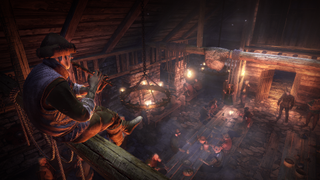
By giving specific cards to the NPCs you meet, Gwent is more than just a way to earn a few extra coins. In Red Dead Redemption, you don’t need to search for extra Blackjack cards. In Watch Dogs, it’s a complete chess set you’re playing with. In fact, in most sandbox games and RPGs, the mini-games feel like distractions – a little flavour to pad out the world. Gwent is different, in that your deck can be expanded and improved.
New cards are bought from shops and inns, or won from the world’s top players. It feels like a genuine pastime – a way for the game’s characters to momentarily escape the trouble of their lives. More than that, it gives players a reason to explore. Now, whenever I enter a new town, I race to the nearest tavern. Not for sidequests or healing items, but to see what cards are for sale.
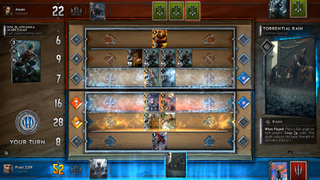
In defeating the Baron’s hand, I earn Sigismund Dijkstra – a Spy card with a relatively low attack value. It’s a great result. Spy cards are placed on your opponent’s side of the board, adding to their attack total. In return, two random cards from your collection are added to your hand. In my first match using Sigismund, I play him on my opening turn. My opponent counters by playing a Decoy – putting my Spy into his hand. He plays it on his next turn, turning my own card against me and nullifying my advantage. I’m slightly in awe. I hadn’t considered the possibility of combining ability cards in such a way.
Sign up to the 12DOVE Newsletter
Weekly digests, tales from the communities you love, and more
Gwent’s AI opponents are extremely literate with ability cards and, if given the chance, will combo them to devastating effect. They’ll always play the best possible move, and so the challenge comes from the contents of their hand. In this way, CD Projekt RED not only create a natural difficulty curve as you move through the game, but give each opponent their own personality. Which faction they play, what abilities they have available – each person you meet has their own specific style.
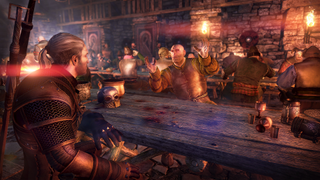
The benefit of a competent AI is it forces you to learn from its actions. If Spy cards can be stolen, that means they can also be resurrected. Sure enough, on the second round, I play a Medic and select Sigismund from my discarded pile. His ability is retriggered, and I get another two cards – finally giving me the advantage. And if resurrected cards retrigger their ability, what happens if I resurrect a medic? It too is a success, letting me bring back a second card. Gwent teaches you its basic rules, but leaves you to figure out its most advanced tactics.
Crucially, though, complexity emerges through the interplay of the cards – not in individual abilities themselves. Each is simply explained. Spies infiltrate an opponent’s board, Medics resurrect discarded cards, Scorch burns away the highest value cards. It doesn’t take long to see the full range of special effects but, tens of hours later, I’m still discovering new tactics.
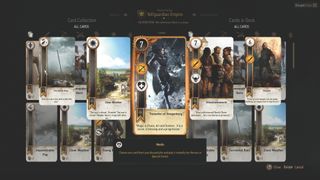
Take, for instance, the Poor Fucking Infantry card. I’d initially dismissed it as being awful – a single point of attack power making it too weak to bother with. Hours in, though, I realised how many I’d accumulated, and that they all had the Tight Bond perk. With Tight Bond, every duplicate card played doubles the attack value of its copies. One Infantry has one attack point, but add another and both have two. With four on the board, each card is an eight point monster for a combined total of 32. I was elated when I realised how powerful this seemingly useless card really was, and devastated when an opponent’s Scorch card cleared them all from the board. Even the most powerful tactics have a counter.
Gwent is now being spun out into a standalone multiplayer game, but I'm not sure this is such a good thing. Part of the joy is tracking down the best cards – seeing a Geralt, Avallac’h or Yennefer on an opponent’s board and anticipating the day you’ll be able to add it to your own collection. For me, that’s a reason to continue on Geralt’s dark, often tragic adventure. And so yes, Baron, I will find your family. But only because there’s guaranteed to be some good cards on the other side.
This article originally appeared in Xbox: The Official Magazine. For more great Xbox coverage, you can subscribe here.
Phil is the UK Editor of our sister site, PC Gamer. He's been writing for them for over a decade, initially starting out as a freelance writer specialising in MMOs. Now he leads PC Gamer's UK team, but still sometimes finds the time to write about his ongoing obsessions with Destiny 2, GTA Online, and Apex Legends. When he's not levelling up battle passes, he's checking out the latest tactics game or dipping back into Guild Wars 2.
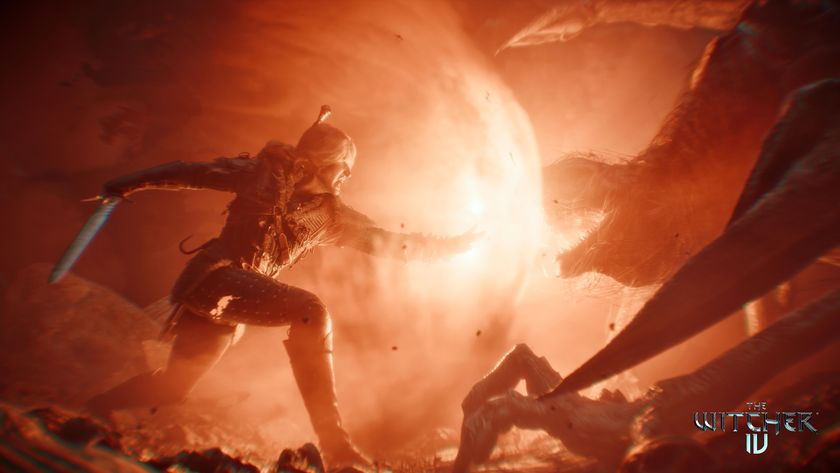
The Witcher 4 and Naughty Dog's Intergalactic are reportedly skipping 2026 and won't be ready until at least the year after

CD Projekt boss says "cutting-edge single-player games" – you know, like The Witcher 4 and Cyberpunk 2 – will "continue to enjoy great popularity" despite industry shifts









